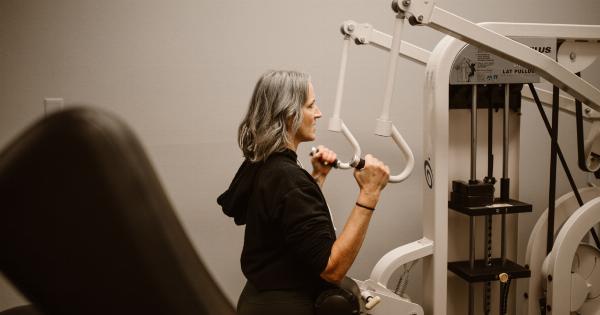Menopause is a natural part of a woman’s life, marking the end of her reproductive years. It typically occurs between the ages of 45 and 55, but the symptoms can start earlier for some women.
Menopause brings various changes to a woman’s body due to fluctuating hormone levels, and these changes can lead to a range of unpleasant symptoms. While menopause is an inevitable phase, there are ways to alleviate and manage the associated symptoms. In this article, we will explore seven effective ways to soothe menopause symptoms naturally.
1. Maintain a Balanced Diet
A healthy and balanced diet is crucial for overall well-being, and it becomes even more important during menopause. Include plenty of fruits, vegetables, whole grains, and lean proteins in your meals.
These nutrient-rich foods provide essential vitamins and minerals that support hormone balance and overall health. Additionally, certain foods such as soy, flaxseeds, and oily fish like salmon and sardines, are known to contain phytoestrogens that may help alleviate menopause symptoms.
2. Stay Active
Regular physical activity is beneficial for managing menopause symptoms. Engage in moderate aerobic exercises like walking, swimming, or cycling to boost your overall fitness level.
Exercise helps reduce the risk of weight gain, improves bone health, and enhances mood. It also aids in managing hot flashes, improving sleep quality, and reducing the risk of chronic diseases associated with aging. Aim for at least 30 minutes of exercise most days of the week.
3. Practice Relaxation Techniques
Stress can worsen menopause symptoms, so it’s important to find healthy ways to relax and unwind. Incorporate relaxation techniques such as deep breathing exercises, meditation, yoga, or tai chi into your daily routine.
These practices have been shown to reduce stress, promote better sleep, and help women manage hot flashes and night sweats more effectively.
4. Get Sufficient Sleep
Menopause can often disrupt sleep due to night sweats, insomnia, or hormonal fluctuations. Prioritize quality sleep by maintaining a regular sleep schedule and creating a relaxing bedtime routine.
Make your sleeping environment conducive to rest by keeping the room cool, dark, and quiet. Avoid caffeine and electronic devices before bed, as they can interfere with sleep. If sleep disturbances persist, consult a healthcare professional for further guidance.
5. Stay Hydrated
Drinking an adequate amount of water is essential for overall health, and it can be especially beneficial during menopause. Hydration helps combat dryness, hot flashes, and other symptoms. Aim to drink at least 8 cups (64 ounces) of water per day.
If you experience severe hot flashes or excessive sweating, consult your doctor for personalized recommendations on fluid intake.
6. Seek Support
Menopause is a significant life transition that can often bring physical and emotional challenges. It can be helpful to seek support from friends, family, or support groups who understand and empathize with what you are experiencing.
Having a support network can provide a safe space to share your concerns, exchange tips, and gain insights from others who have gone through or are going through menopause.
7. Consider Natural Remedies
In addition to lifestyle changes, some women find relief from menopause symptoms through natural remedies.
Herbal supplements like black cohosh, red clover, and evening primrose oil have been used traditionally to alleviate menopause symptoms, although scientific evidence for their effectiveness is limited. It is important to consult a healthcare professional before starting any herbal supplement to ensure its safety and suitability for your specific needs.
It’s important to remember that every woman’s menopause experience is unique, and what works for one may not work for another.
If you find that your menopause symptoms are significantly affecting your quality of life or are causing considerable distress, consult a healthcare professional. They can provide personalized recommendations and, if necessary, discuss medical interventions to effectively manage your symptoms.
In conclusion, menopause is a natural phase in a woman’s life that brings significant changes to her body.
By maintaining a balanced diet, engaging in regular exercise, practicing relaxation techniques, prioritizing sleep, staying hydrated, seeking support, and considering natural remedies, women can find relief from menopause symptoms. Embracing these strategies can empower women to navigate this transitional phase with comfort, ease, and overall well-being.





























